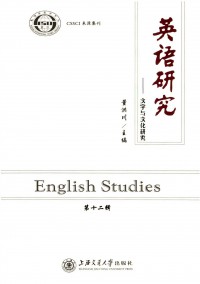英语谚语来源
前言:本站为你精心整理了英语谚语来源范文,希望能为你的创作提供参考价值,我们的客服老师可以帮助你提供个性化的参考范文,欢迎咨询。

[Abstract]Proverbs,incolorfulandvividlanguage,reflectimportanttypicalculturalvaluesofeveryculture.Simpleandpopular,conciseandpithy,theyarepassedonfromgengerationtogenerationinthereadableoralformandhavegraduallybecomeacomponentindispensabletothedominantcultureofthatnation.
Thispapercontainsthreeparts:thesourcesofEnglishproverbs、thefunctionsofEnglishproverbsandtherhetoricaldevicesofEnglishproverbs.
Firstly,itintroducesthesourcesofEnglishproverbs.Proverbshavealonghistory.Theyarebriefandwell-polishedexpressionsembeddedinphilosophicalideasconcerningdifferentaspectsoflife.Theyarethesummaryofpeopleexperienceineverydaylife,sotheyoriginatedfrompeople’sdailylifeandexperience.Tobespecific,theycomefromfolklife,religion,mythology,literaryworks,otherlanguages,famouswriters’wisdom,anation’shistoryandsoon.
Secondly,itmentionsthefunctionofEnglishproverbs.Itsfunctionistoteachandadvisepeoplewhattheyseeintheirlives.ManyEnglishproverbsguidepeopletoadoptacorrectattitudetowardslifeandtotakeaproperwaytogetalongwellwithothers.Someotherproverbstellpeoplewhattodoandhowtodoit,sotheproverbsguidepeople’sdailylife.Fromthem,peoplemaybroadentheirknowledgeandoutlook.
Thirdly,itdescribestheirrhetoricaldevices.Englishproverbsarerichandcolorful.WithregardtotheeverlastingcharmoftheEnglishproverbs,therearemanydifferentreasons.Themostimportantoneistheextensiveuseofrhetoricaldevicesandrhythmaticalways,sotheirlanguageisfullofimageandvividnessandhasastrongartisticbeautyandpower.
[KeyWords]Englishproverbs;sources;functions;rhetoricaldevices
谚语丰富多彩,生动隽永,反映了每个民族追崇的重要而独特的文化价值观。谚语简单通俗,精辟凝练,尤其以朗朗的口语形态承传沿用,渐渐成为民族主流文化不可缺少的一部分。
这篇论文包含三个部分:英语谚语的来源,英语谚语的功能及其修辞。第一部分是介绍英语谚语的来源,英语谚语源远流长,是人类日常生活经验的结晶。它来源于日常生活与经验,确切地说,来源于民间生活,宗教,神话,文学著作,其他语言,名人名言以及国家历史等。第二部分是介绍英语谚语的功能,谚语的功能是教育和指导人们在日常生活中所碰到的情况,同时它们引导人们采取正确的态度对待生活。从谚语中,人们可以拓宽自己的知识面,避免出错,具有敏锐的观察力的人从中受益非浅。第三部分是介绍英语谚语的修辞:英语谚语丰富多彩,具有永恒的魅力,其原因之一就是应用了大量的修辞格和押韵方法,这就使谚语更形象,生动并具有强烈的艺术美和感染力。
英语谚语;来源;功能;修辞格
1.Introduction
Proverbsareshortsayingsoffolkwisdomofwell-knownfactsortruthscompendiousexpressedandinawaythatmakesthemeasytoremember.Becausetheproverbsaresobrief,theyhaveuniversalappeal.Manypeoplelovetopickupproverbs.Theuseofoneortwointheoriginallanguageisoftenaminorvictoryforthebeginningforeignlanguagelearners.Proverbsmayprovideinterestinglittleglimpsesorcluestoapeople’sgeography,history,socialorganization,socialviews,andattitudes.Peoplewholivealongseacoastsandwhoselivelihoodisdependentontheseawillhaveproverbsaboutsailing,aboutbravingtheweather,aboutfishandfishing.Incultureswhereoldageisrevered,therewillbeproverbsaboutthewisdomoftheelders.Andinsocietieswherewomen’sstatusislow,therewillbeanumberofsayingsdemeaningthem.
Proverbstellmuchaboutapeople''''straditionalwaysofexperiencingreality,abouttheproperorexpectedwaysofdoingthings,aboutvaluesandwarnings,andrulesandwisdomstheelderswanttoimpressonthemindsoftheiryoung.Theimportantcharacterofproverbs‘theshorterthebetter’makesiteasytocommitthemtomemoryforreadyrecallwhentheoccasioncallsforseriousorhumorouscommentorwarning.Createdbypeopleinhighandlowstatus,humblefolkandgreatauthors,borrowedfromancientorneighboringcultures,proverbshavebeenaccumulatingovermanycenturies.Someareonlylocallyknown;manyaresharedaroundtheworld.IfonewantstohavebetterknowledgeofEnglishculture,heshouldbefamiliarwiththesourcesandfunctionsofEnglishproverbs.
2.ThesourcesofEnglishproverbs
2.1Originatingfromfolklife
Proverbsarethesummaryofpeopleexperienceintheireverydaylife.Thesummarizedexperienceandreasonareabstractedfromthepracticeofpeople’slifeandwork.Theyexpresspeople’ssimpleandhealthythoughts,feelingsandsentiments.Moreoftenthannot,itrevealsauniversaltruthfromaparticularpointsoastoenlightenpeople.
Agreatnumbero
fproverbswerecreatedbyworkingpeoplesuchasseamen,hunters,farmers,workmen,housewivesandcooksandsoon,usingfamiliartermsthatwereassociatedwiththeirowntradesandoccupations.Forexample,Livingwithouttheaimislikesailingwithoutacompasswasfirstusedbyseamen;Ifyourunaftertwohares,youwillcatchneitherbyhunters;Aprilrainsforcorn,May,forgrassbyfarmers;NewbroomsweepscleanbyhousewivesandToomanycooksspoilthebrothbycooks,etc.Suchexpressionswereallcolloquialandinformalandonceconfinedtoalimitedgroupofpeopleengagedinthesametradeoractivity.Buttheywereprovedtobevivid,andforcibleandstimulating,solatertheybrokeoutoftheirboundsandgraduallygainedwideacceptance.Asaresult,theirearlystylisticfeaturesfadedinsomewayandmanyhavecometobecomepartofthecommoncoreoflanguage,nowbeingusedindifferentoccasions.
Someproverbsarerelatedtosomefolkpracticeandcustoms.Forexample,Goodwineneedsnobush.1ThisproverbisfromanancientpopularEnglishpractice.Inthepast,Englishwinemerchantstendedtohangsomeivybushesorapictureofivybushesontheirdoorsasasymbolofwineselling.Butsomemerchant’swinewassogoodthatitcan’tbeignoredwithoutsign.Thisinfactshowsthepastcommonpracticethatmerchantsofdifferenttradeswouldhangdifferentparticularthingsassignsfortheirgoods.
Anotherexampleisinvolvedwithpeople’sweddingpractice.Englishpeoplebelievedthatiftheweatherwerefineandsunnyonagirl-weddingday,thegirlwouldmostprobablyenjoyahappymarriagelife.Otherwise,allsortsofmisfortunesandtragedieswouldbefallonher.Becauseofthiscustom,EnglishpeoplehavegotaproverbHappyisthebridethatsunshineson.2ThisproverboriginatedfromthecommonpracticeinancientChina.Inthepast,younggirlsdidn’thavetherighttodecidewhomtomarry.Theirparentshadthefinaldecisionintheirmarriage.Usually,theparentswouldaskamatchmakerforhelp.Thematchmakerwentbetweentwofamiliesandpassedonthemessages.Finally,thegirl’sparentsmadethefinaldecisionwhetherthegirlwouldmarrythechosenboyornot.Thisisknownasarrangedmarriage.Suchamarriage,moreoftenthannot,wouldleadthecoupletoanunhappylife.Becausetheyseldomorevenneversaweachotherbefore,theyknewevenlittleabouttheotherparty’sbehaviorormanners,letalonehis/herpersonalityorvirtues.Itwasoftenbeyondthecouple’shopestoenjoyahappymarriage.
Someproverbscamefromancientpeopledeeplyrootedbeliefssuchastheirsuperstitioustendencyandbelief.Inthepast,Englishpeoplebelievedthatifapersonspoiledsaltfromthesaltbottle,misfortuneandbadluckwouldfollow.Thenthispersonmustscatterthespoiledsaltfromtheirleftshoulderssoastodriveofftheirillluck.Inturn,EnglishpeoplehavegottheproverbHelpmetosaltandyouhelpmetosorrow.3Someproverbscomefrompeople’sdistinctionbetweensexessuchastheirdiscriminationagainstwomen.Itcomesfromadeeplyrootedtraditionalviewpoint.SuchasThreewomenandagoosemakeamarket;Longhairandshortwit;Themorewomenlookintheirglass,thelesstheylooktotheirhouse.
2.2Originatingfromreligion
BibleisessentialforBritishandAmericancultures.ItissaidthattheirculturesarenotintegratedwithoutBible.ItissafetosaythatBibleinfluenceseveryaspectofitsdisciples’life.Consequently,manysayingsandsentencesinBiblehavebeenpopularlyaccepted.Theyhavebeendeeplyrootedamongpeopleandpeoplefrequentlyusethemtociteatruthorexpresstheirideaswithoutpayinganyattentiontotheiroriginsanymore.ThesesayingsarenolongeronlyconfinedtoreligionandtheyhavebecomeproverbswhichreflectEnglishpeoplereligiousfaithsuchasEverymanmustcarryhisowncrossThisproverbisfromBible,Matthew,onthegroundsofMatthew,themainideaislikethis:“Asthesoldierswentout,theycameuponamanfromCyrenenamedSimon;theycompelledthismantocarryJesus’cross.AndwhentheycametoaplacecalledGolgotha(whichmeansPlaceofaskull),theyofferedJesuswinetodrink,mixedwithgall;butwhenhetastedit,hewouldnotdrinkit.Andwhentheyhadcrucifiedhim,theydividedhisclothesamongthemselvesbycastinglots;thentheysatdownthereandkeptwatchingoverhim.Overhisheadtheyputthechargeagainst,whichread,“ThisisJesus,thekingoftheJews.””4Fromthis,wecanknowthatcrossmeanssufferings.Theproverbtendstotellusthateveryoneshouldputupwithmiseryindailylifeandundertakethelife’sburden.
AnotherproverbisalsofromtheBible:Onedoesn’tliveonlybybread.ItisfromtheBible,Deuteronomy,thegeneralideais:“RememberthelongwaythattheLordyourGodhasledyouthesefortyyearsinthewilderness,inordertohumbleyou,testingyoutoknowwhatwasinyourheart,whetherornotyouwouldkeephiscommandments.Hehumbledyoubylettingyouhunger,thenbyfeedingyouwithManna,withwhichneitheryounoryourancestorswereacquainted,inordertomakeyouunderstandthatonedoesnotlivebybreadalone,butbyeverywordthatcomesfromthemouthoftheLord.”5Fromthis,wecanknowthatmaterialisnottheonlythingthatisindispensabletomen.Spiritisalsoveryimportant.Isoneisonlysearchedformaterial,hewillbeconsideredasanimals,forthemostdistinctivecharacteristicbetweenmenandanimalsisthatmenhavepursuitofspiritbutanimalshaven’t.Manyimagesintheseproverbshavedidacticmeanings.
EnglishpeoplebelieveinChristianity,whichisbyfarthemostinfluentialreligioninthewest.Everyaspectofman’slifeistouchedbythisreligion,sothatithasbecomepartofwesternculture.AndtheBible,whichincludestheOldTestamentandtheNewTestament,isregardedasthescriptures.AlmosteveryfamilyhasaversionofBible,soithascometobeoneofthemajorsourcesofEnglishculture.ManyEnglishproverbsshowthedoctrinesoftheirreligion.Forexample,Letnotthylefthandknowwhatthyrighthanddoeth.6AccordingtothedoctrinesofBible:allhumanbeingsarebrothersandsisters,andtheyshouldhelpeachother.Sowhenyougivehandstoothers,neverkeepthememorythatyouhavehelpedthem.Anotherexample,Iftheblindleadtheblind,bothshallfallintotheditch.7Itimpliesthatifonehaslittleknowledge,itisdifficultforhimtoteachotherssomeusefulthings.Evenifhetriedtohelpothers,hewoulddonothinggoodtothem.
2.3Originatingfromliteraryworks
ManyEnglishproverbsinvolveeventsorcharactersofEnglishliterature,especiallyfromShakespeare.Shakespeare’sinsightintohumanbeings,hissensitivitytotheproblemofstate,andhisgeniuswithwordshaveleftaneverlastingmarkontheEnglishlanguageandthethinkingofEnglish-speakingpeopleallovertheworld.NativespeakersofEnglishquotehisworkseveryday,oftenwithoutrealizingtheyaredoingso.Althoughhisplayswerewrittenoverthreehundredyearsago,manyEnglishproverbsfromhisplaysarecitedcommonlyindailyEnglish.
Shakespeare’sworksareprobablythemostcolorfulliteratureoriginofproverbs.Forexample,Allisnotgoldthatglitters.ThisproverbisfromthegreatworksofShakespeareTheMerchantsofVenice.Itshowsusthatthosewhohaveagoodappearancearenotreallylearned.Soweshouldbecarefulnottobedeceivedbythosewhoaresuperficiallyflashybutwithoutsubstance.Anotherexample,Patienceperforceismedicineforamaddog8isfromShakespeare’sworksAntonyandCleopatra.Ittellsusthatthosewhocannotendureanythingwouldlosehistemperlikesamaddog.
ManyEnglishproverbsarealsofromTheFablesofAesop.Theseproverbsareveryconciseandhumorous,andtheyreflecttheessenceandthetruemeaningoflife.Itisveryeasyforpeopletounderstandthemandtoputthemintopractice.Manyofthemarepasseddowntilltoday.Forexample,Thecamelgoingtoseekhorns,losthisears.9Thegeneralideaoftheallusionis:acowshowedoffhishornsinfrontofacamel.Thecamelwasenviousofcow’shorns,soherequestedZeustogiveapairofhornstohim.Zeuswasveryangry,becausehethoughtthatthecamelwasgreedytoaskforhornswithhissohugebody.Atlast,hemadeadecisionthatheletthecamelhavehornsbutwiththecostofcuttingoffapartofhisears.Thisproverbtellsusthatifoneisgreedytooccupyeverything,hewillbepunishedbyhisgreed.
AnotherproverbisalsofromtheFablesofAesop.“Thegrapesaresour”,asthefoxsaidwhenhecouldnotreachthem.10Theallusion,whichthisproverbcamefrom,isgenerallylikethis:oneday,ahungryfoxsawalotofripegrapeshangingonthegrapevine.Hebeathisbrainshardbutcouldnotfindawaytopickthegrapes.Thehungrierhefelt,theangrierhegot.Finally,hegaveup.Inordertocomforthimself,“Thegrapesaresour”,thefoxsaidwhilewalkingaway.Nowadays,peoplewidelyuseittoexpressthatsomeonewhowantstotakeholdofsomethingwithallhiseffortbutfailstogetitwilllowerthevalueofthisthing.
Therearealsootherproverbs,suchas:Abarleycornisbetterthanadiamondtoacock.11Theallusion’smainideais:whenahungrycockwassearchedforfood,hesawadiamond.Thecocksaidtothediamond:“Tosomeonewhoadmiresyou,youareapreciousthing;buttome,youhavenovalueatall,forallvaluablethingcannotmatchwithabarley-corn.”Indeed,accordingtoourcommonsense,adiamondisfarmorevaluablethanabarley-corn.Buttoahungryman,especiallytosomeonewhoneedsgrainsbadly,hewouldchoosegrainsbutnottreasure,fortreasurecannotsatisfyhisstomach.Sothisproverbtendstoimplythatdifferentpeoplehavedifferentviewsnothesamething.Thesubmittingtoonewrongbringsonanother.12Theallusion,whichthisproverbcamefrom,isgenerallylikethis:asnakewasoftenriddendownbypeople,sohecomplainedittoZeus.Zeustoldhimthatifhebitsomeonewhofirstlytrampledonhim,thenextonewouldnottramplehim.Itshowsthatifoneputupwiththemistakehemadeatthefirsttime,hewillmakeanothersimilarmistake.Soweshouldgainalessonfromtheaboveallusionsoastoavoidmakingthesamemistakes.
2.4OriginatingfromGreekandRomanmythology
“WesternersareheirstoGreco-Romancivilization.ManyideasnowprevailinginwesterncountriescanbetracedbacktothethinkersinancientGreeceandRoman.GreekandRomanmythologiesarewellknowninthewestandhavebeardonastronginfluenceuponpeople’slivesinwesterncountries.ItisnaturalthatitbecomesacommonsourceofEnglishproverbs.”13
SomeproverbsarefromGreekandRomanmythology.Eachofthemhasanallusion.Forexample,TheDeviltoohasAchilles’heel.14AccordingtotheHomer,wecanknow:AchilleswasaGreekhero.Excepthisheel,everypartofAchilles’bodyisswordproof,sohisheelishisfataldefect.TheproverbtellsusthateventheDevilhashisweakness.Nomanisabsolutelypowerful.ThereisasimilarexamplefromRomanmythology.NotevenHerculescouldcontendagainsttwo.15Hercules,asonofZeus,wasaheroinRomanmythology.Hehadincredibleforce,whichhelpedhimgaintwelveheroicachievements.Althoughhewaspowerfulenough,hecouldn’tdefeatalargenumberofenemiesonhisown.Sotheproverbstellsusthatman’senergyislimitednomatterhowpowerfulheis.Anotherexample,withoutCeresandBacchus,Venusgrowscold.16CeresisRomangoddessofgrainandagriculture;BacchusistheGreetgodofwine;Venusisthegoddessofbeautyandlove.Fromthis,wecanknowthatCeresandBacchusstandforbasicnecessityoflife.Sotheproverbtendstoexpressthatlovecan’tbesweetwithoutmaterialsupport.
2.5Originatingfromotherlanguages
Withthedevelopmentofsociety,alanguagecannotavoidcontactingwithotherlanguages.Inthecontact,thecertainlanguagesurelyabsorbssomeproverbsfromothers.Withalonghistory,EnglishlanguageborrowedalargenumberofproverbswidelyfrommanyotherlanguagesincludingGreek,Latin,German,Italian,Spanish,Dutch,Hebrew,Arabic,Chinese,andotherlanguages,amongwhichLatin,GreekandFrenchprovidetherichestnutrition.MostoftheborrowedproverbsinEnglish,duetotheremotenessoftime,havealreadyassimilatedormergedintotheEnglishlanguagewiththeirtracesalmostimpossibletofollow.
ManyEnglishproverbsoriginatedfromFrench.17William,DukeofNormandy,France,landedhismightyarmyatPevensyanddefeatedSaxonkingHarold’smennearHastings.WilliamwascrownedaskingofEngland,andthenheopeneddoorstothecontinentandextendedcultureandcommercialrelationswithFrance.Norman-Franceculture,languageandarchitecturewereintroduced.TheconquerorsruledEnglandinalongperiodoftime,andmostofthegovernorsusedFrenchastheirformallanguage.AlthoughEnglandfinallywonhersovereignty,therewerestillmanyborrowedwordsfromFranceremained.Especially,EnglishpeopleacceptedmanyFrenchsayings.Forexample,Don’tputthecartbeforethehorse;Ventureasmallfishtocatchagreatone;Ifthelion’sskincannot,thefox’sshall.
ManyEnglishproverbscamefromLatin.18BecauseoftheintroductionofChristianityintoBritain,theinfluenceoftheNormanConquestandtheRenaissanceonEnglish,LatinwordshadmadetheirwayintotheEnglishlanguage.AmongtheseLatinwordstherealsoincludedmanyproverbs,whichgainedwideacceptanceofEnglishpeople.Suchas:Fortunefavorsthebrave;Hewhosayswhathelikes,shallhearwhathedoesnotlike;IfeartheGreeks,evenwhenbringinggifts;Thereisnorulewithoutanexceptionandsoon.
2.6Originatingfromfamouswriters’wisdom
FamouswritersprovidedoneoftherichestsourcesforEnglishproverbs,whichisonlynexttotheproverbsoffolkorigin.Wealsocansaythatmostproverbs,regardlessoftheirinitial,havebeenpolishedandpreservedandpopularizedbyfamouswritersintheirworks.ItisgenerallyagreedthatsuchfamouswritersasBacon,Pope,Franklinandsooncontributedquitealottothecreation,preservationandpopularizationofEnglishproverbs.
BaconisadistinguishedEnglishphilosopherandwriter.Heisnotedforastyleofthoroughexpositionandalternativemaxims.ManysentencesinBacon’sworkshavebecomegoldensayingandprevailedamongpeople.Forexample,Readingmakesafullmantellspeoplethatonlybyreadingcanapersonbecomelearnedandprofound.AnotherproverbKnowledgeispoweremphasizestheimportanceofknowledgeandencouragespeopletostudymoreandlearnmore.
PopeisanothercelebratedfigureinEnglishliterature.Heemphasizeseducationandknowledgeverymuch.Somesentencesfromhisworkshavebeenacceptedbythereadersandbecomedeeplyrootedamongpeople.TakeAlittlelearningisadangerousthingforexample.ThisdidacticproverbisasentenceinPopeAnEssayonCriticismanditreflectshisideasaboutknowledgeandlearning.
BenjaminFranklinisafamousAmericanstatesman,scientistandwriter.Manysayingsfromhisworkswerewidelyacceptedandenlightenpeople.Forexample,Littlestrokefellgreatoaks.19Ittellsusthatonenevergivinguppursuingknowledge,becauseonlythosewhoarestrong-mindedcanbehighlyintellectual.Anotherexample,Godhelpthemthathelpthemselves.20Ittendstotellusthatsolongasonevaluesself-relianceandindependence,hecancreateopportunities,seekcompetitionandbereadyfortherisks.
3.ThefunctionofEnglishproverbs
ThefunctionsofEnglishproverbsarethattheyexpresssomerulesofconductandquiteoftenconveysomeadviceorcounsel.Inotherwords,mostEnglishproverbspossessphilosophicdepthorinstructivefunction.ForthousandsofyearstheyhavebeeninstructingandinspiringEnglishpeople,sotheyhavebeenregardedastheguidelineofpeople’sthoughtsanddeeds,whichmeansEnglishpeoplearethinkingordoingthingsbyfollowingthedirectionoftheirproverbseitherconsciouslyorunconsciously.Englishproverbshavebecomeanimportantsourcesofinspirationjustbecausetheycontaintruth,wisdom,counsel,ruleofconduct,etc.FollowingwillmentiontwofunctionsofEnglishproverbs.
3.1Thefunctiontoadvise
Someproverbsareintendedtopersuadeandteachpeople.Topersuadeistopraisejustice,tofightagainstthebully.Toteachistoguidepeopletoadoptacorrectattitudetowardslife,totakeaproperwaytogetalongwellwithothers.Forexample,Betterdiewithhonorthanlivewithshame;Don’thavecloaktomakewhenitbeginstorain.Suchproverbssoundveryfirmandresoluteandtheycanstrengthenpeopleconvictionandawakenpeopleconsciousnessoflifeorbettertheirthinkingmethods.Theyareveryhelpfulforpeopletomakedistinctionbetweenrightandwrong,tobeclearaboutwhattoloveandwhattohate.Becausetheyaregoodforpeople’sself-cultivationandtheycancallfordeepthought,manypeopletaketheseproverbsastheirlifemotto.
Someotherproverbsrevealandcriticizethedarksideoftheagesorsociety.Theyattackthedirtypracticesofthesocietysoastoremindpeopletokeepconsciousandmaintainsharpwarning.Forexample,Thefoxchangeshisskin,butnothishabit;Aleopardcannotchangeitsspots.Peopletendtorecitesuchproverbswhentheyaredisclosingtheevilinthesocietyorwhentheyareremindingotherstokeepalert.
3.2Thefunctiontospreadexperiencesandknowledge
Manyproverbssummarizeknowledgeofpeople’sdailylifesuchasThebestwinecomesoutofanoldvessel;Softfiremakessweetmalt.Aspeople’sdailylifeiscomplicatedandextremelytrifling,suchproverbsarenumerous.Theysummarizepeople’sknowledgeintheirlifeandtheytellpeoplewhattodoandhowtodoit.Theyarejustlikeanencyclopediatoguidepeople’sdailylife.Fromthem,peoplemaybroadentheirknowledgeandoutlooksoastoavoidmakingmistakes.Someproverbsofthistypeareconcernedwithaparticularfield,likefarmerproverbsandmeteorologicalproverbs.Peasantsofdifferentages,intheiroveryears’work,practiceandprovethefarmingexperienceandproductiverules.Fromgenerationtogeneration,theysumuptheirexperienceandthefarmingrulesintosomevivid,conciseandlivelysentences.Thesesentencesarefarmerproverbsandtheyarepracticedandtestifiedyearafteryearandtheyhavebeenprovedtrueandaccurate.Theyreflectthepeasants’farmingexperienceandagriculturallawandshowtheworkingpeople’swisdom.Farmerproverbsareapreciousandvaluablepartofagriculturaldata.Peasantsofdifferentageshavesomeofthemasguideintheirfarming.Andmeteorologicalproverbs,whichsummarizethefundamentalmeteorologicalknowledgeofgenerations,arealsoabighelpinpeoplelife.Forexample,AprilshowersbringforthMayflowers;AcoldMayandawindymakesafullbarnandafindy;DryAugustandwarmdoesharvestnoharm;Afairdayinwinteristhemotherofastorm;Amistymorningmayhaveafineday;Cloudymorningsturntocleare
venings.
4.TherhetoricaldevicesofEnglishproverbs
IfwesaythephilosophicorinstructiveaspectofEnglishproverbsisagoodhelptothepeople,thenwecanalsosaythattheartisticoraestheticaspectofEnglishproverbsisaccelerantthatattractspeople’sattentiontomakefulluseofthem.Englishproverbsarealwaysterse,figurativeandwithpleasantsoundeffect,whichmakethemeasytomemorizeandpleasanttoears.FollowingwewilldiscusstherhetoricaldevicesofEnglishproverbs.
4.1Repetition
(1)Soundinbody,soundinmind.
(2)Foolslearnnothingfromwisemen,butwisemenlearnmuchfromfools.
(3)Oneboyisaboy,twoboyshalfaboy,threeboysnoboy.
(4)Awisemanthinksallthathesays;afoolsaysallthathethinks.
Fromtheaboveexamples,wecanfindthattherepeatedwordorideahasareinforcingeffect.Withtherepetitionofthesamewordinclosesuccession,wemaynoticethatthemainpointofthesentencebecomesclear.Itcanalsobeusedtoexpressstrongemotionandgiveusanaestheticfeelingandasenseoflogicalprogressionofideas.21
4.2Phonology
4.2.1Alliteration
(5)Hewhomakesconstantcomplaintsgetslittlecompassion.
(6)Afairfacemayhideafoulheart.
(7)Thefairestflowerssoonestfade.
(8)Timeandtidewaitfornoman.
Fromtheaboveexamples,wecanfindthattheseproverbsarevividwithrhythm.Becauseofrhythm,alliterationisagreathelptomemory.Itcancatchtheattentionofthereadersandmaketheideaimpresseddeeplyonthereaders,sotheproverbsareeasiertoremember.
4.2.2Consonance
(9)Inyouththehoursaregolden,andinmatureyearstheyaresilvern,andinoldagetheyareleaden.
(10)Hopeforthebest,preparefortheworst.
(11)Wherelovefails,weespyallfaults.
Fromtheabove-mentioned,consonancemakestheproverbsmorerhythmicandmoreappealing.Itisalsogoodforsoundrhyme,musicaleffectandsignificantemphasis.
4.2.3Assonance
(12)Wheretheneedlegoes,thethreadfollows.
(13)Whothatinyouth,novirtueuses,inoldallhonorhimrefuses.
(14)Afriendinneedisafriendindeed.
Therepetitionoftheabovevowelproducesmusicalrhythmandsoundeuphony.
4.3Comparison
4.3.1Simile
(15)Marchcomesinlikealionandgoesoutlikealamb.
(16)Truefriendshipislikesoundhealth,thevalueofwhichisseldomknownuntilitbelost.
(17)Alambisasdearasdearastoapoormanasanoxtotherich.
Aswecanseefromtheaboveexamples,simileexplainsabstract,complicatedideasinsimpleandconcreteway.
4.3.2Metaphor
(18)Moneyisagoodservantbutabadmaster.
(19)Knowledgeisatreasurebutpracticeisthekeytoit.
(20)Hopeisthepoorman’sbread.
Aswecanseefromtheaboveexamples,animpliedcomparisonbetweentwodifferentthingsthatshareatleastoneattributeincommon.
4.3.3Metonymy
(21)Alightheartliveslong.
(22)Asoftanswerturnedawaywrath.
(23)Anironhandinavelvetglove.
(24)Aclosemouthcatchesnoflies.
Aswecanseefromtheaboveexamples,unlikesimile,thecomparisoninmetaphorisimplied.Itrequiresgreaterabilityonthepartofthereadertomakeoutthehiddenassociationorinsight,sometaphorisgenerallymorecomplicatedandmoreinvolvedthansimile.Theaboveproverbsenrichandstrengthenthereader’sexistingassociationandbringingaboutgreaterrhetoricaleffectiveness.22
4.4Personification
4.4.1Inanimateobjectspersonalizing
(25)Wallhasears.
(26)Moneymakesthemarego.
(27)Thepotcallsthekettleblack.
4.4.2Animalspersonalizing
(28)Thefoxknewtoomuch,that’showhelosthistail.
(29)Nightingaleswillnotsinginacage.
(30)Thetortoisewinstheracewhilethehareissleeping.
(31)Twosparrowsononeearofcornmakeanillagreement.
4.4.3Plantspersonalizing
(32)Agreattreeattractsthewind.
(33)Asingleflowerdoesnotmakeaspring.
4.4.4Abstractideaspersonalizing
(34)Truthconquersallthings.
(35)Opportunityseldomknockstwice.
(36)Virtuedwellsnotinthetonguebutintheheart.
Intheaboveproverbs,thereareincludingthreepartsofpersonification.Usingpersonificationmakestheproverbsmorevividandmoreattractive.Itcanimpressthereadersdeeply.
4.5Parallel
(37)Inforapenny,inforapound.
(38)Inyouththehoursaregolden,andinmatureyearstheyaresilvern,andinoldagetheyareleaden.
(39)Theleastsaid,thesoonestmended.
Aswecanfromtheabove,parallelstructurecancreateagoodvisualimageandhel
preadersmovequicklyfromoneideatothenext.Parallelismgivesemphasis,charityandcoherenceofideas,anditalsogivestherhythmoftheproverbs.Ithelpsthereaderstocatchtheideaofthespeakersorwritereasilyandpleasantly.23
4.6Synecdoche
(40)Twoheadsarebetterthanone.
(41)Greatmindsthinkalike.
Herethewords“head”and“mind”arebothrepresent“aperson”.
4.7Hyperbole
(42)Athousandyearscannotrepairamoment''''slossofhonor.
(43)Theworldisbutalittleplace,afterall.
(44)Anunfortunatemanwouldedrownedinateacup.
Hyperboleisacommonlyusedasignofgreatemotionasshownintheaboveexamples.Thereisnointenttodeceivethereader,instead,inthespeaker’smindheistrulydescribinghisintensefeelingatthetime.
4.8Pun
(45)Measureyourselfbyyourownfoot.
Heretheword“foot”hastwomeanings:onemeanshuman’heel,theotherisdimensionalunit.Sotheaboveproverbhastwodifferentmeanings,whichcreateapun.
(46)Rueandthymegrowbothinonegarden.
Heretheword“rue”hastwodifferentmeanings:oneisthenameofkingofflower,theothermeansregret.Theword“thyme”andtheword“time”havethesamepronunciations.Thesetworeasonsmakeapun.
5.Conclusion
Proverbsaretheoutcomeoflanguage.Theycomefrompeopleandareusedbypeople.“Proverbs,asaprominentscholaroncesaid“themirrorofanation”and“thelivingfossilofalanguage”,doplayanimportantroleindifferentlanguagesandcultures.InthewordsofFrancisBacon,“theGenius,witandspiritofanationarediscoveredinitsproverbs.””24ThereareavarietyofproverbsalmostallEnglishspeakersarefamiliarwith.Theyregardthesewordsofwisdomwithrespect.
Tosumup,themajorsourcesofEnglishproverbsaretheexperienceofthecommonpeople,literaryworks,religiousscripture,mythology,translatedloans,andhistory.SowecangainsomebasicknowledgeofEnglishculturethroughlearningEnglishproverbs,whichplaysanimportantroleincross-culturalcommunication.Becauseofusingrhetoricaldevicesandrhythmicalways,Englishproverbsarefilledwithimageandvividness,whichcancatchtheattentionofthereadersandmaketheideaimpresseddeeplyonthereaders.Theyalsorevealauniversaltruthfromaparticularpointinordertoenlightenpeople.Soproverbsgivepeopleadviceorwarningsindealingwitheverydayissues,andpointoutthepathtoknowledgeandself-cultivation.
Bibliography
1王德春、杨素英、黄月圆.汉英谚语与文化[M].上海:上海外语教育出版社,2003.P57
2郝澎.英美民间故事与民俗:你不可不知道的英语学习背景知识[M].海口:南海出版公司,2004.5.P49
3同注2,P41
4圣经(马太福音第27章第32节)[M].中国基督教三自爱国运动委员会;中国基督教协会.南京爱德印刷有限公司,2000.P57
5圣经(申命记第8章第3节)[M].中国基督教三自爱国运动委员会;中国基督教协会.南京爱德印刷有限公司,2000.PP283-284
6王书亭、王建敏.英语流行谚语[M].东营:石油大学出版社,2004.4.P174
7同注6,P168
8同注1,P41
9同注1,P55
10同注1,P55
11同注1,P56
12同注1,P55
13王振亚.语言与文化[M].北京:高等教育出版社,1999.4.P191
14同注1,P186
15同注1,P50
16王振亚.实用英语语言文化[M].保定:河北大学出版社,2004.8.P139
17刘宝权、侯艳萍.《英语专业八级人文知识》[M].大连:大连理工大学版社,2005.9.P47
18林承璋.《英语词汇学引论(修订版)》[M].武汉:武汉大学出版社,1997.4.PP36-37
19同注6,P88
20同注1,P100
21张秀国.英语修辞学[M].北京:清华大学出版社;北京交通大学出版社,2005.P127
22同注22,P165
23同注22,P129
24GuiQing-yang.DegreesofAffinity:AcomparativestudyonEnglishandChineseproverbs[J].JOURNALOFSHANGRAOTEACHERSCOLLEGE,Aug.1994,Vol.14(No.3):P92



